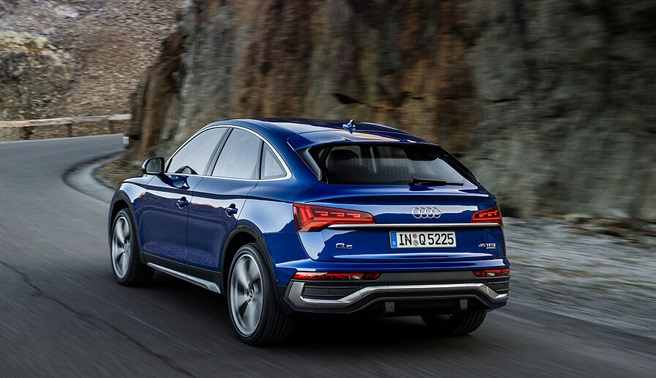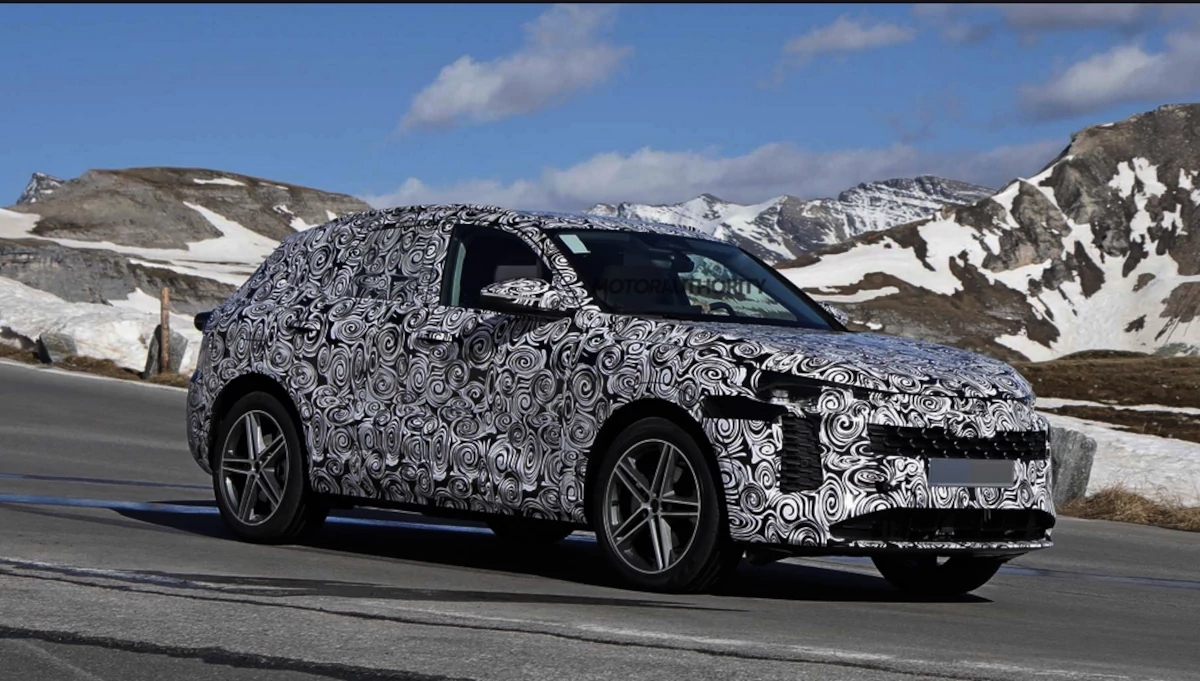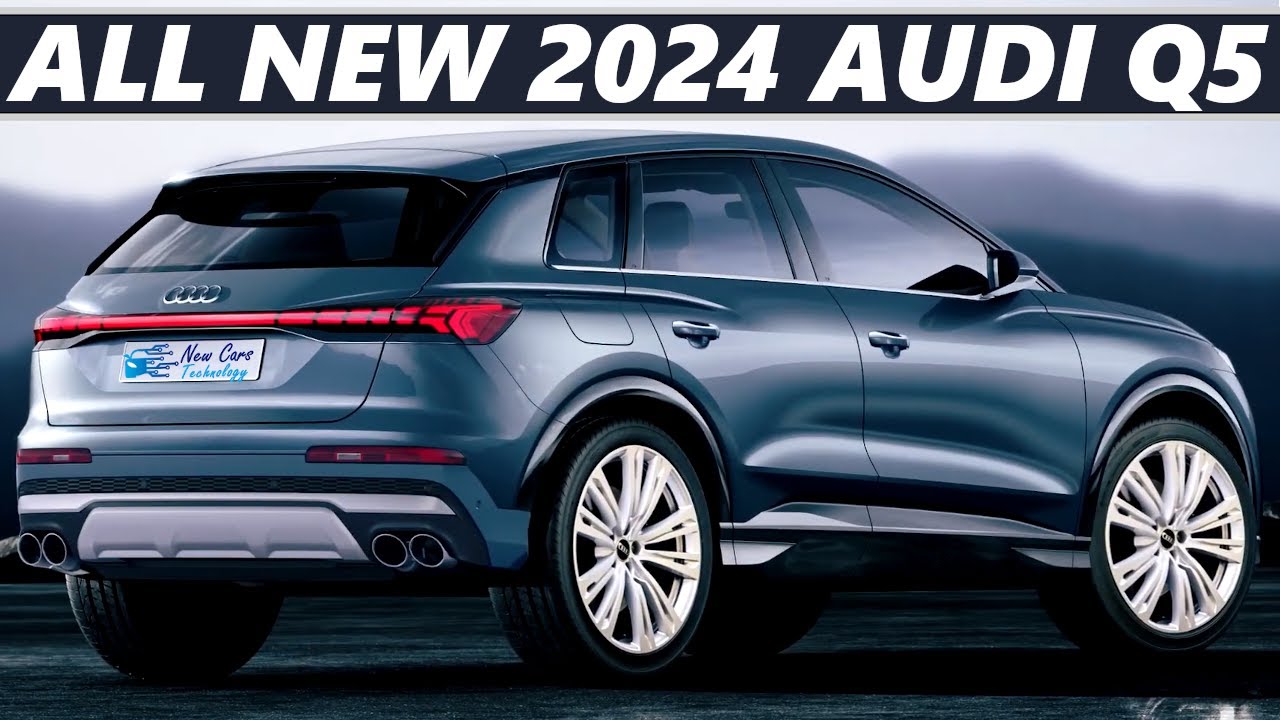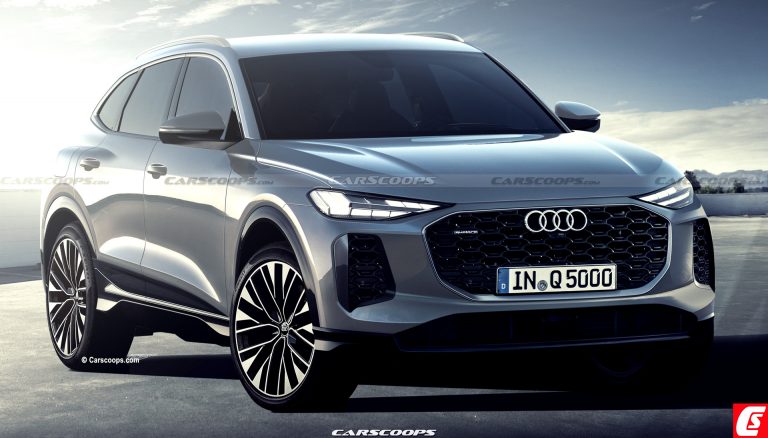
Unveiling the 2025 Audi Q5: Fuel Efficiency and Tank Capacity in the Spotlight
The Audi Q5, a perennial favorite in the luxury compact SUV segment, is poised for a refresh in 2025. While details remain shrouded in speculation, one key aspect generating considerable interest is the anticipated fuel efficiency and the associated gas tank size. This article delves into the potential changes, exploring the factors influencing the 2025 Audi Q5’s fuel economy and examining the implications for its range and driving experience.
Fuel Efficiency: A Balancing Act of Performance and Sustainability
The automotive industry is grappling with the imperative to reduce emissions while maintaining performance and affordability. The 2025 Audi Q5 is expected to navigate this complex landscape by incorporating a range of fuel-saving technologies, including:
- Engine Refinement: Audi’s renowned engineering prowess will likely result in enhanced engine efficiency through optimized combustion processes, reduced friction, and advanced turbocharging systems.
- Hybrid Powertrains: The introduction of mild-hybrid or plug-in hybrid options is anticipated, leveraging electric motors to supplement the gasoline engine, thereby improving fuel economy and reducing emissions.
- Aerodynamic Optimization: Subtle design tweaks, such as streamlined bodywork and active grille shutters, can significantly reduce drag and improve fuel efficiency.
- Weight Reduction: Utilizing lightweight materials like aluminum and carbon fiber in key components can contribute to a lighter overall vehicle weight, leading to enhanced fuel economy.
Gas Tank Size: A Trade-off Between Range and Efficiency
While the 2025 Audi Q5 is expected to boast improved fuel efficiency, the size of its gas tank remains a subject of speculation. Here’s a breakdown of the factors influencing this crucial aspect:
1. Fuel Efficiency Gains: Improved fuel efficiency could potentially allow for a smaller gas tank without compromising range. This approach aligns with the industry trend of reducing vehicle weight to improve fuel economy and emissions.
2. Driving Range Requirements: The target market for the Q5, encompassing both urban and suburban commuters as well as occasional long-distance travelers, dictates a balance between fuel efficiency and range. A smaller tank might be sufficient for daily commutes but could necessitate more frequent refueling on longer journeys.
3. Market Trends and Competition: The competitive landscape plays a role in determining the optimal gas tank size. If rivals offer larger tanks, Audi might feel pressured to match or exceed those capacities to maintain its position in the market.
4. Technological Advancements: The development of advanced fuel-saving technologies, such as range-extending electric motors, could potentially mitigate the need for a large gas tank.
Potential Scenarios for the 2025 Audi Q5 Gas Tank Size
Based on the factors discussed above, several scenarios are plausible:
- Scenario 1: Slightly Reduced Tank Size: Audi could opt for a slightly smaller tank, perhaps in the 17-18 gallon range, while leveraging its improved fuel efficiency to maintain competitive range. This scenario would prioritize fuel economy and reduce the vehicle’s overall weight.
- Scenario 2: Maintaining Current Size: The 2025 Q5 might retain the current gas tank size, around 19 gallons, to ensure adequate range for long-distance trips and cater to customer expectations. This approach prioritizes range over fuel efficiency.
- Scenario 3: Hybrid-Specific Tank Size: If Audi introduces plug-in hybrid variants, the gas tank size might be significantly reduced, perhaps to around 14-15 gallons. The electric motor would provide the primary source of propulsion for shorter trips, while the gasoline engine would serve as a range extender for longer journeys.
Impact on Driving Experience
The gas tank size of the 2025 Audi Q5 will have a direct impact on the driving experience:
- Range and Refueling Frequency: A smaller tank will necessitate more frequent refueling, potentially impacting the convenience of long road trips. However, improved fuel efficiency might offset this inconvenience by reducing the overall number of refueling stops.
- Driving Style and Fuel Consumption: Aggressive driving habits and frequent acceleration will consume fuel more rapidly, leading to shorter driving ranges, regardless of the tank size. Conversely, a more relaxed driving style will maximize fuel efficiency and extend the range.
- Cost of Ownership: A smaller tank, combined with improved fuel efficiency, could lead to lower fuel costs over the vehicle’s lifetime.
Conclusion: A Balanced Approach to Fuel Efficiency and Range
The 2025 Audi Q5 is poised to embrace a balanced approach to fuel efficiency and range, catering to the diverse needs of its target audience. While the precise gas tank size remains shrouded in speculation, the anticipated improvements in fuel economy, coupled with the potential for hybrid powertrains, suggest that the Q5 will offer a compelling blend of performance, efficiency, and practicality.
As the 2025 model year approaches, further details regarding the Q5’s gas tank size and fuel economy will likely emerge. Automotive enthusiasts and potential buyers alike will be eagerly awaiting this information, as it will play a key role in shaping the driving experience and overall value proposition of this highly anticipated SUV.
Beyond the Tank: Exploring the Broader Picture
While the gas tank size is a crucial aspect of the 2025 Audi Q5, it’s important to consider the broader picture. The focus on fuel efficiency is a reflection of the automotive industry’s commitment to sustainability and the evolving consumer preferences towards environmentally conscious vehicles.
The 2025 Q5 is expected to embody this shift by incorporating a range of innovative technologies, including advanced engine designs, electrification, and aerodynamic enhancements. These advancements will not only improve fuel economy but also enhance performance, handling, and overall driving experience.
The Future of Fuel Efficiency: A Journey Towards Sustainability
The pursuit of fuel efficiency is an ongoing journey, driven by technological advancements, regulatory pressures, and consumer demand. The 2025 Audi Q5 is a testament to this evolution, showcasing the industry’s commitment to developing vehicles that are both powerful and responsible.
As we move towards a future where sustainability is paramount, we can expect to see even more innovative solutions emerge, further reducing our reliance on fossil fuels and paving the way for a cleaner, more efficient automotive landscape. The 2025 Audi Q5 is a glimpse into this exciting future, demonstrating the potential for luxury and sustainability to coexist harmoniously.









